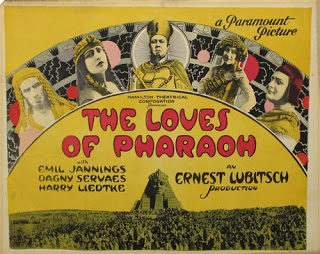During the silent film years, Germany had one
of the most impressive film industries in the world with directors like Robert
Weine, Fritz Lang, Murnau, Pabst and Ernst Lubitsch making some astonishing
films that broke all the rules of what was happening in Hollywood. All of
these directors were to leave Germany except for Pabst either for the glamour
of Hollywood or to escape the rise of Nazism.
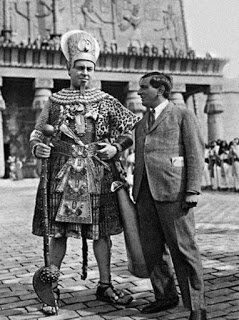
Lubitsch was to move to Hollywood right after directing this film in 1922,
but he left a fine film legacy behind him in Germany. His work in Germany
was quite varied – he had yet to develop what became known as the “Lubitsch
Touch” in his droll sophisticated romantic Hollywood comedies – as he made
films as light and delightful as The Doll and The Oyster Princess, historical
dramas like Anna Boleyn and Madame DuBarry, gender breaking comedies like
I Don’t Want to be a Man that certainly showed early hints of the “Lubitsch
Touch”, horror such as The Eyes of the Mummy and here he made an epic historical
film with large sets, great melodrama and enough extras to fill the Super
Bowl.
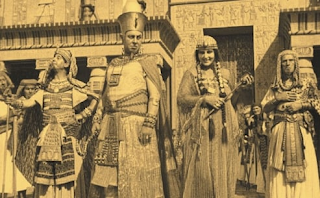
A number of Lubitsch’s German films have been lost and this one nearly so
– it was patched together using a few battered prints and photos and still
some 20% of the film is estimated to be missing – and making it even more
difficult is the fact that when it was released it was done so in different
versions to placate the home audience – thus in the USA the last act was pretty
much cut out giving it a seeming happy ending. It isn’t. This restored version
is the way Lubitsch meant it to finish.
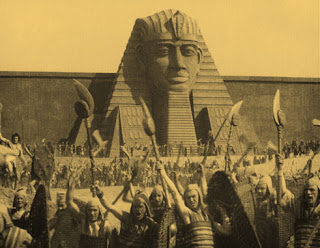
The plot is fairly simple but the sets and cinematography are not, utilizing
much of the technique from the silent period that has long gone by the wayside
– the oversized gestures, the make-up to add expression, the use of light
and shadow and the camera becoming a telescope for close-ups. Basically the
son of the Pharaoh’s prime builder rescues a slave girl from the Ethiopian
King who is travelling to Egypt to marry his quite unattractive daughter to
the Pharaoh. But instead the Pharaoh sees the slave girl and falls madly in
love with her- but she is love with her rescuer and he with her. This leads
to war and tragedy.
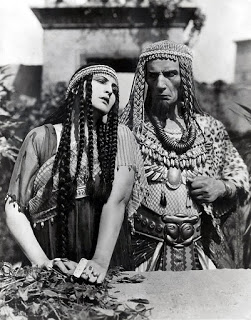
What might be puzzling to modern audiences and speaks perhaps to changing
taste or at least Germanic taste at the time is that the actress, Dagny Servaes,
is something of a lump and the hero played by Harry Liedktke is a middle-aged
man of no particular shape. He was a star at the time and sadly died in 1945
by Russian soldiers while trying to save a woman from being raped. Most famous
though is the Pharaoh, played by Emil Jannings, who was a star in Germany
and also won the first Academy Award for The Last Command in 1928 and then
two years later played opposite Marlene Dietrich in The Blue Angel. After
his foray into American films ended due to his accent he went back to Germany
and became an enthusiastic supporter of Hitler. Which certainly takes him
out of the running for me for anything.
